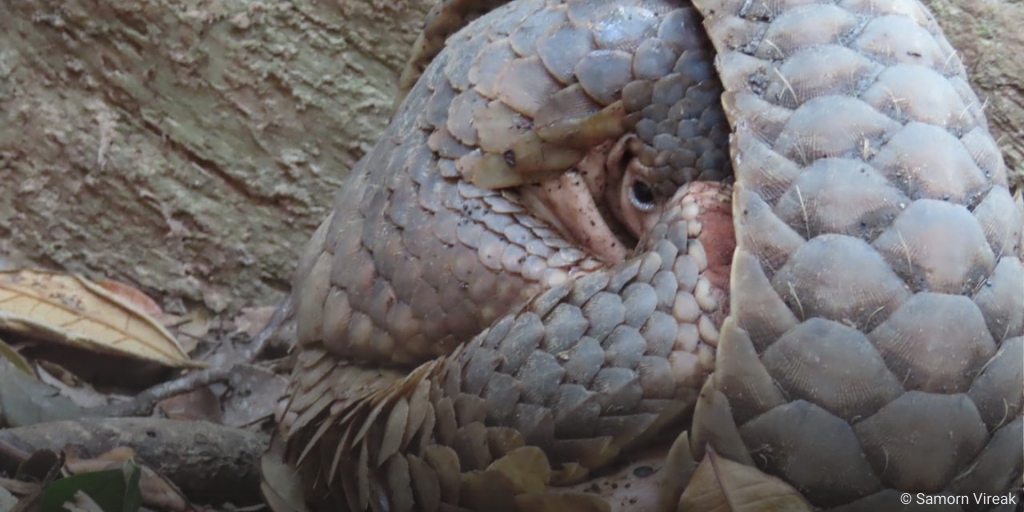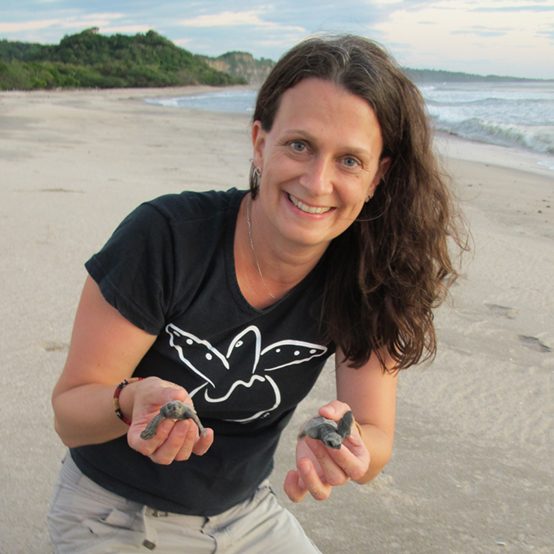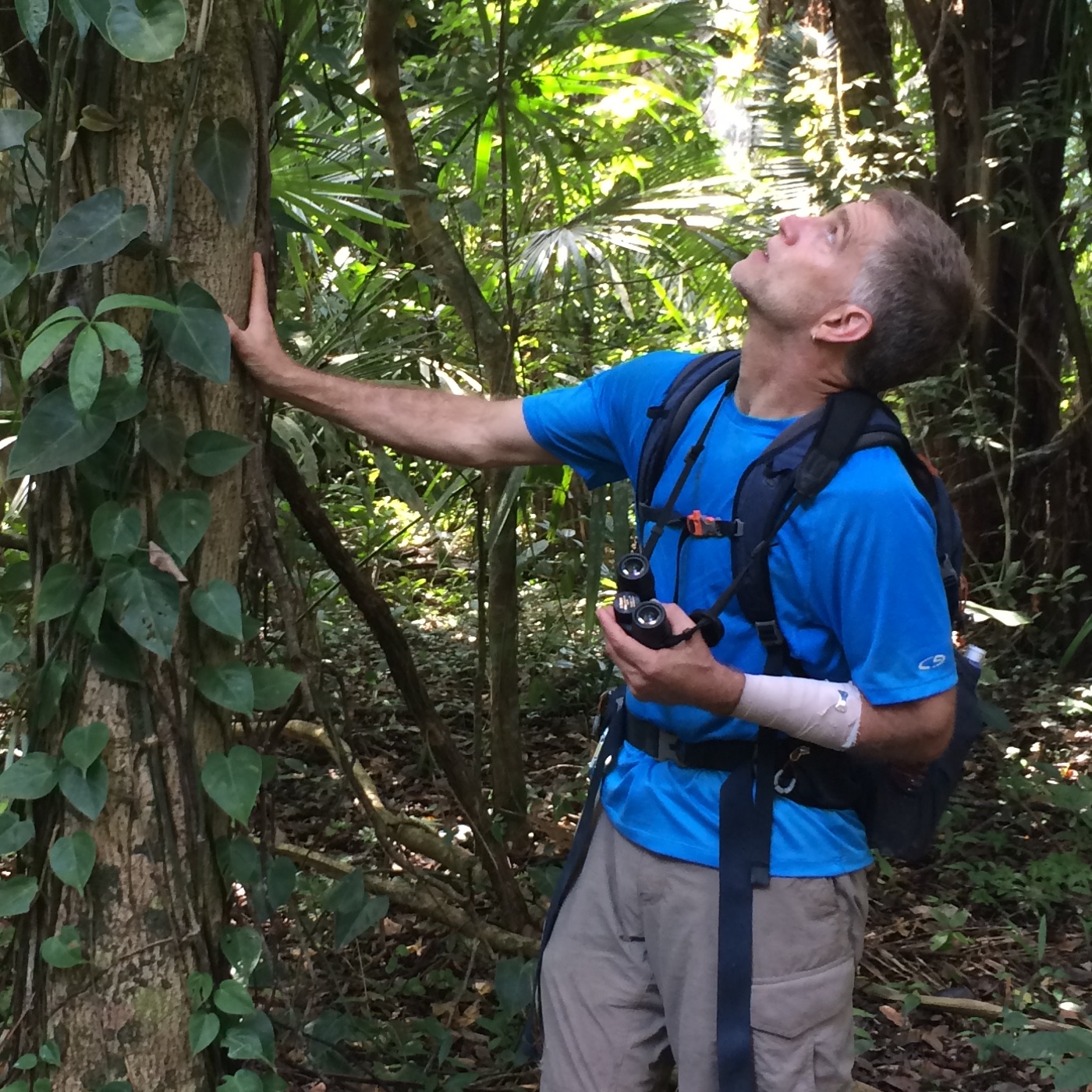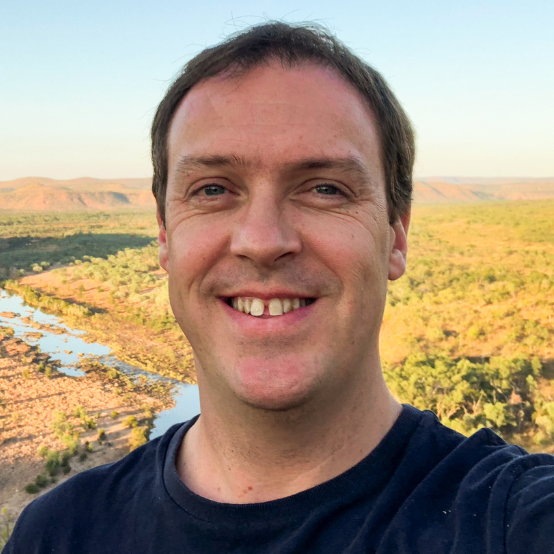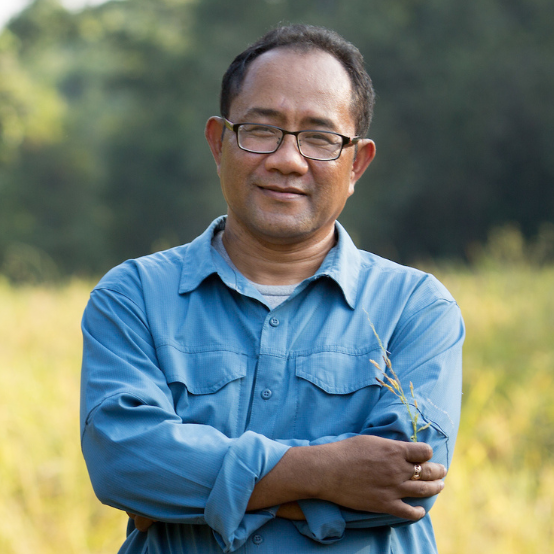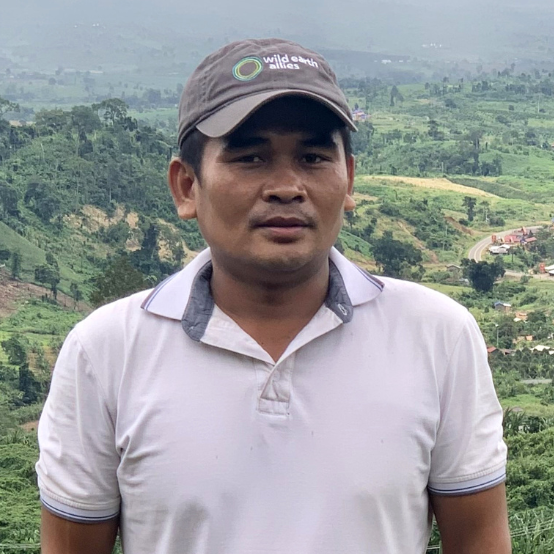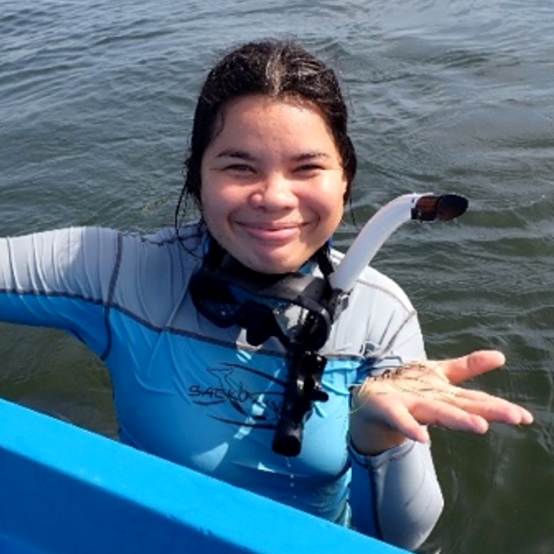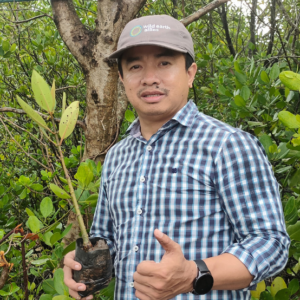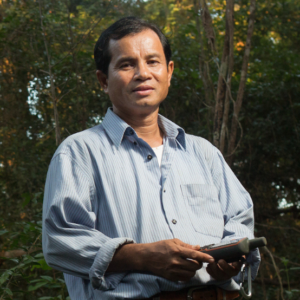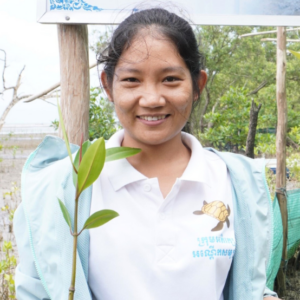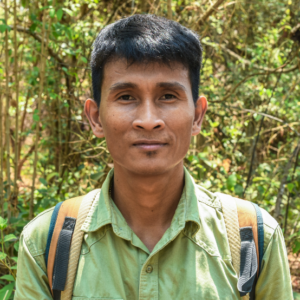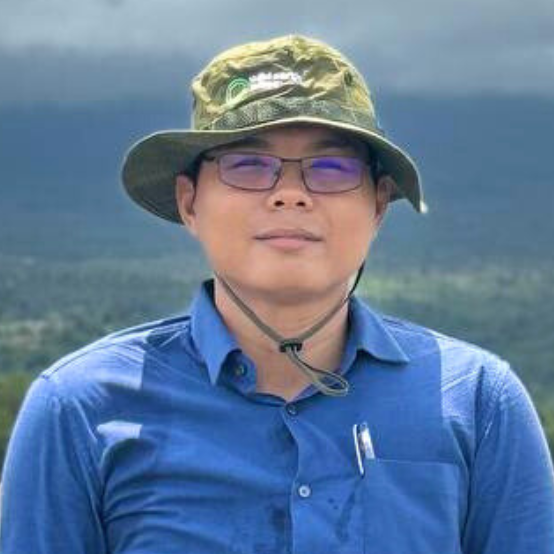Sunda pangolins have walked the Earth for 60 million years. Today, they are critically endangered across their range in Southeast Asia. The Sunda pangolin is one of eight species of pangolin—the most trafficked mammal in the world. Over the past few decades, Sunda pangolin numbers have dropped by an alarming 80 percent due to hunting and poaching for their scales, meat, and body parts.
Like all pangolin species, Sunda pangolins are solitary and nocturnal, making them difficult to spot in the wild. In Cambodia, there are no reliable population estimates of Sunda pangolins. But in some locations, including the Cardamom Mountains, we know pangolins are present because they are often seized from poachers.
In 2022 with support from the Pangolin Crisis Fund, Wild Earth Allies began a crucial, yearlong conservation project to monitor, research, and protect Sunda pangolins in the Cardamoms.
Addressing the Knowledge Gap on Sunda Pangolins
Wild Earth Allies is well-positioned to remedy critical data gaps that can, in turn, drive improved protection for pangolins. The Cardamom Mountains landscape is one of our priority conservation focal areas due to its rich biodiversity and more than five million acres of intact forests. Our Cambodia team has decades of community-based conservation and field research experience and capacity in the Cardamoms.
Led by Wild Earth Allies Cambodia Conservation Manager, Neang Thy, our project was designed with three primary goals:
- Assess the distribution and key habitats of Sunda pangolins in the Cardamoms
- Strengthen the protection of pangolins and priority habitats
- Engage communities in pangolin conservation through environmental education
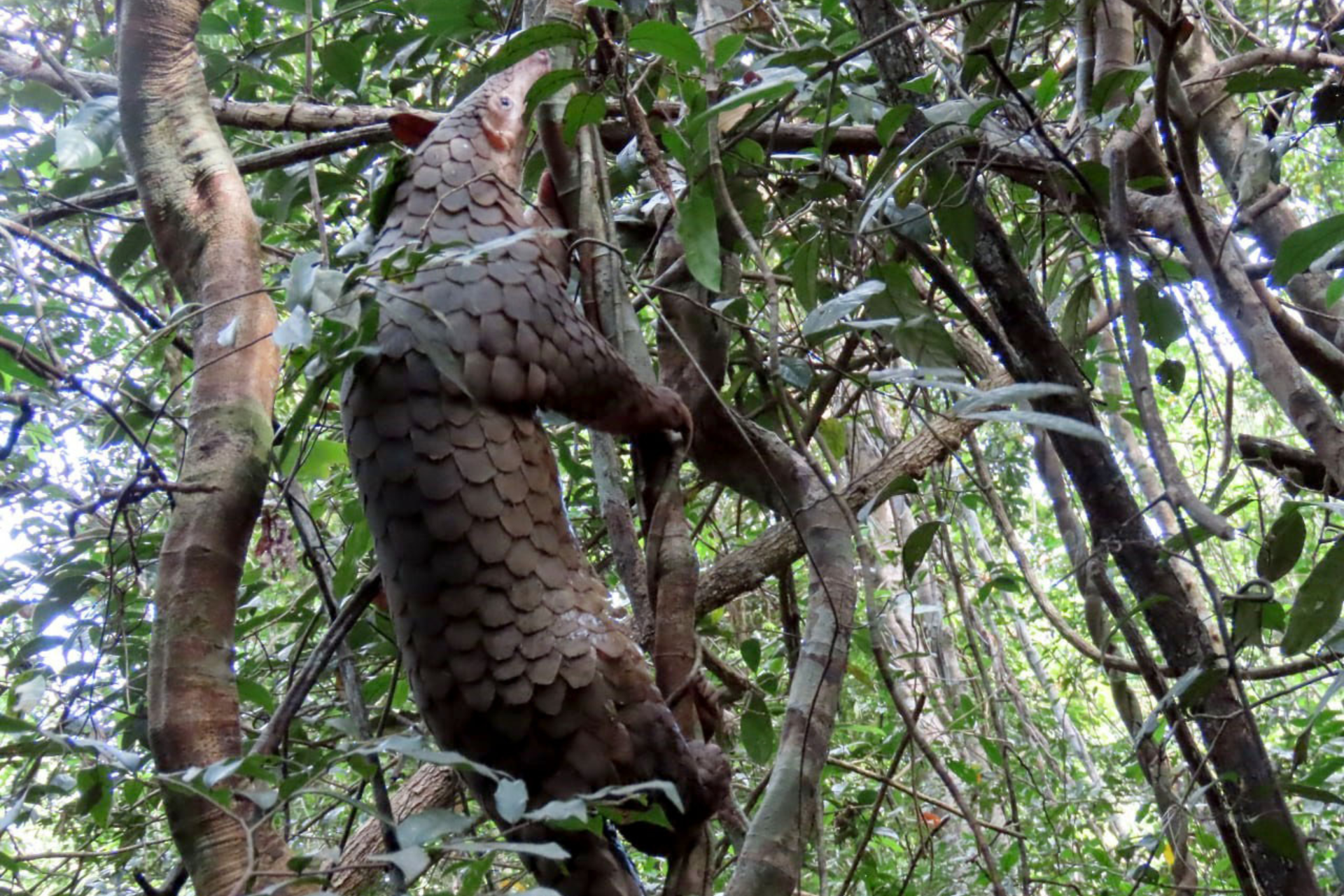
A Sunda pangolin climbs a tree in the Cardamom Mountains (Photo by Neang Thy)
“I no longer hunt pangolins because the price has dropped steeply.”
—Former pangolin hunter
A Drop in Demand for Pangolins
Our team began the pangolin project by interviewing 116 members of six communities in the Cardamoms. Interviewees included 29 people with direct knowledge of Sunda pangolin hunting and trade dynamics. Key takeaways from the community interviews include:
- Half of the respondents agreed that the local demand for pangolins is decreasing.
- About 10 percent of respondents said they stopped hunting pangolin in the past 5–10 years due to falling demand. In the words of one interviewee, “I no longer hunt pangolins because the price has dropped steeply.”
- Some interviewees speculated that Covid-19 may have originated in pangolins. Other respondents believed hunting pangolins brings bad luck, such as severe illness and financial problems.
The interview responses align with a notable decrease in demand for pangolin meat and scales from China, attributable to the Covid-19 pandemic and fears of zoonotic diseases. Changing demand in China may also reflect the country’s recent crackdown on the illegal wildlife trade and removal of pangolin body parts from its list of traditional medicines.
From Pangolin Hunters to Field Guides
Following the community interviews, our team recruited 12 former pangolin hunters to assist our biomonitoring efforts as community field guides. With their extensive backgrounds tracking pangolins, these field guides were adept at locating pangolin footprints and claw marks.
Working over a period of six months, Thy and the field guides located many signs of pangolins. The team observed claw marks on 100 percent of the field surveys. These positive results confirm pangolin remain in the landscape despite long-term pressures.
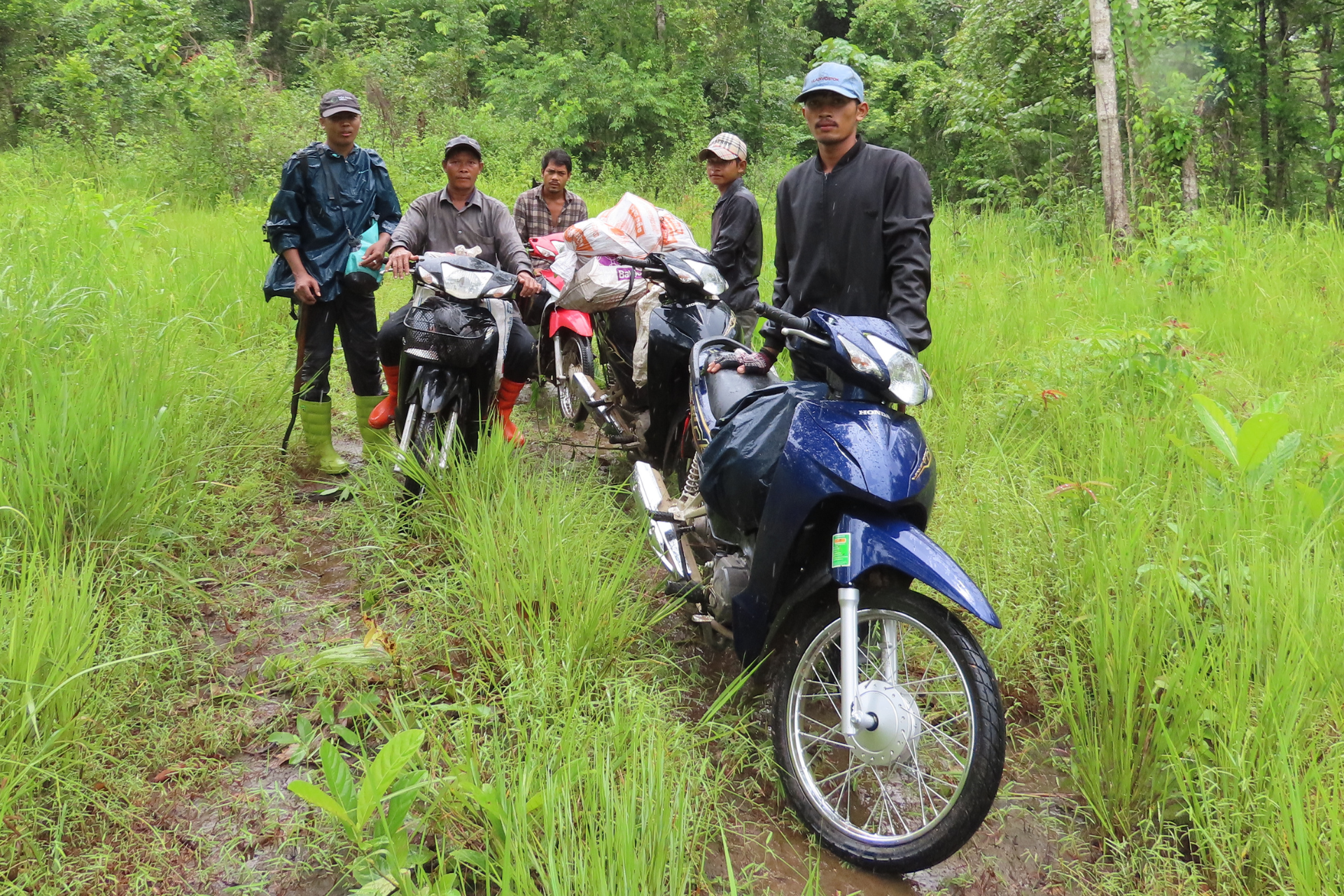
Community field guides move through the Cardamom Mountains in search of pangolins. (Photo by Neang Thy)
The community field guides deployed 14 camera traps around trees where pangolin claw marks were found. Because Sunda pangolins spend much of their time in trees searching for food (particularly ant nests), camera trap images of the species are rare. Our team was extremely pleased to capture pangolin video footage from one of our camera traps. We also experienced a direct pangolin sighting thanks to the skilled tracking of field guides.
Tapping further into extensive field guide knowledge, we established communication channels with community members aware of pangolin hunting and trade dynamics. Information gathered through these channels enables protected area rangers to report to the Ministry of Environment and respond to incidents of illegal trade quickly, improving conservation for pangolins.
A Sunda pangolin appears on camera trap footage in the Cardamom Mountains.
Strengthening the Protection of Pangolins and Priority Habitat
Successful pangolin conservation requires regular monitoring and sustained anti-poaching patrols. In support of increased capacity, we trained 15 protected area rangers from the Ministry of Environment to strengthen monitoring and patrols in critical pangolin habitats.
Our collaboration with the Ministry of Environment on pangolin protection is part of our larger commitment to end snaring and illegal wildlife trade in Cambodia. On Earth Day 2023, Wild Earth Allies partnered with the Ministry to host a “Zero Snaring Campaign” rally in Veal Veng District. The district is home to the Phnom Samkos Wildlife Sanctuary—a protected area in the Cardamoms—where snaring has been particularly problematic. Over 300 community members attended, and 19 restaurant owners committed to stop featuring wild meat on the menu.

Ministry of Environment protected area rangers take part in a training designed to strengthen pangolin protection. (Photo by Neang Thy)
Engaging Communities in Pangolin Protection
Community engagement is a key part of our locally led conservation programs. During the project, we engaged community members, government authorities, and schoolchildren in the Cardamoms to raise awareness and promote pangolin protection. Our efforts included an environmental education workshop where we created materials with participants. The materials featured messaging such as, “Together, we protect and conserve Sunda pangolins for future generations by not hunting, snaring, eating, or trading.” We also distributed fact sheets about Sunda pangolins in communities and schools.
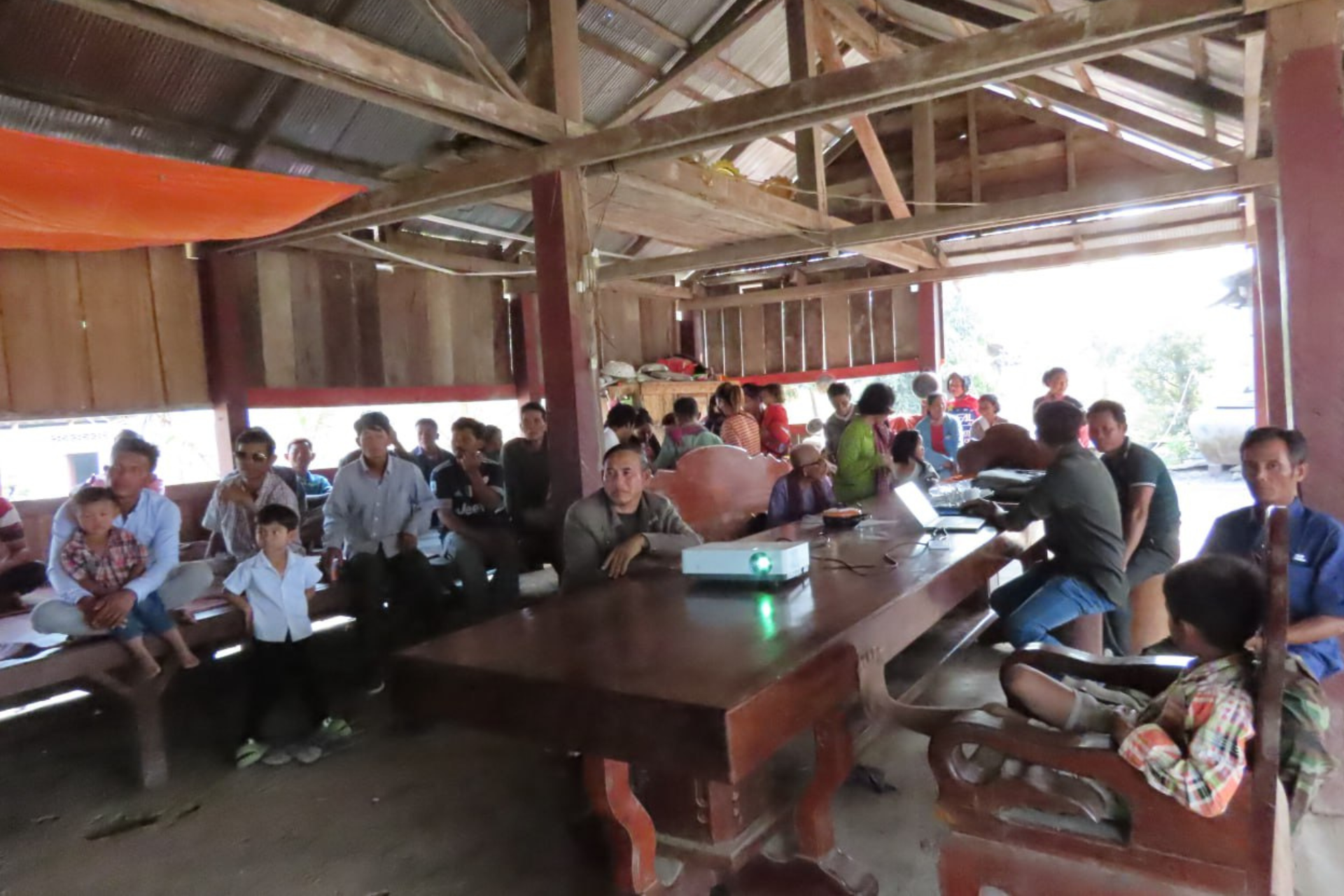
Community members learn about the importance of Sunda pangolins during an education workshop hosted by Wild Earth Allies. (Photo by Neang Thy)
To promote the importance of pangolins in food chains and ecosystem health, we recruited the help of Ministry of Environment protected area rangers. The rangers raised awareness about forestry and wildlife protection laws through community conversations.
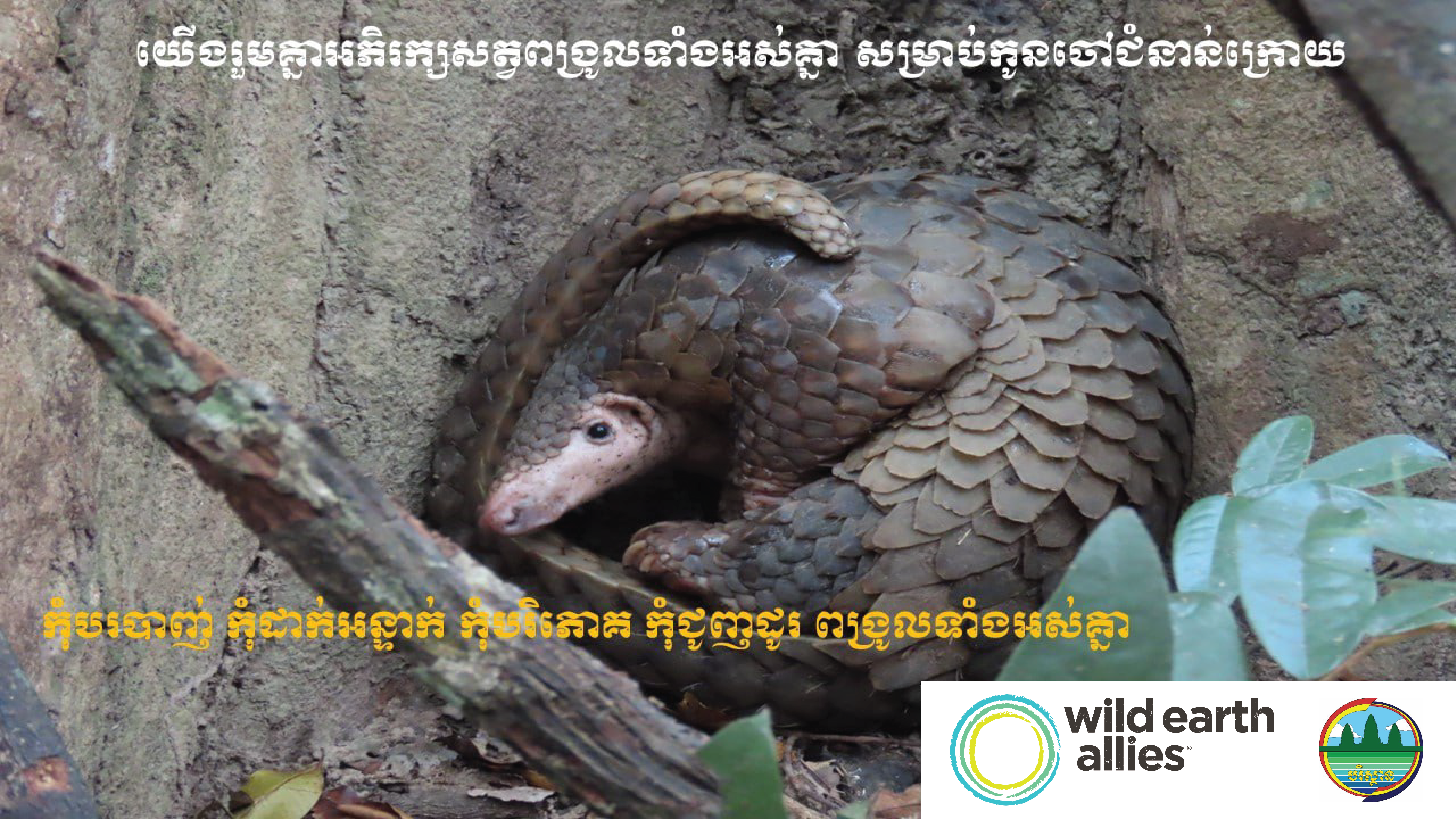
An educational sign in the Khmer language reads, “Together, we protect and conserve Sunda pangolins for future generations by not hunting, snaring, eating or trading.”
A Future for Sunda Pangolins
The early findings of our project suggest a hopeful possibility: the successful recovery of the Sunda pangolin population in the Cardamoms. Looking ahead, we will continue our progress for pangolins through:
- Long-term monitoring and expansion of surveys to more areas in the Cardamoms
- Increased frequency of anti-poaching and snare removal patrols
- Monitoring of trade dynamics through established communication channels
- Increased reach of community environmental education
Please join our efforts to protect Sunda pangolins by making a gift today.


